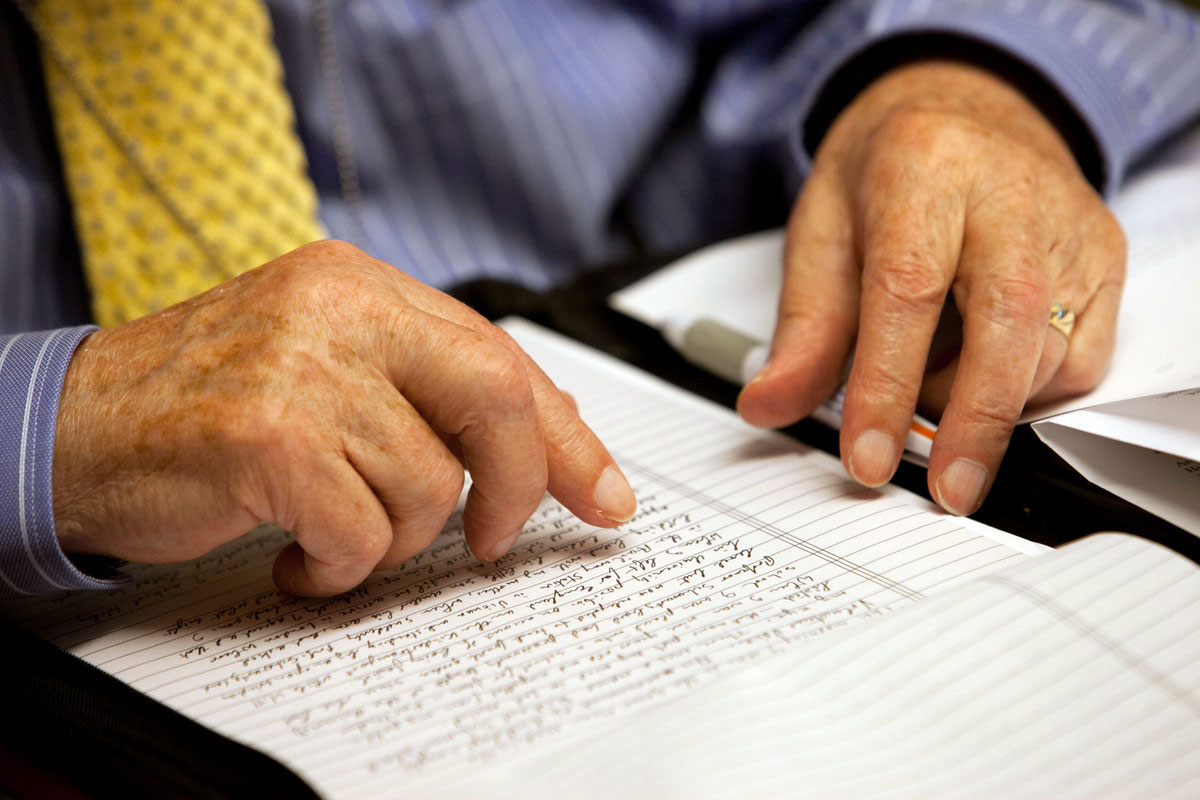Read reflections and testimonies written by Holocaust survivors in their own words.
Blog Home > poland
-
Thank You to the Holocaust Museum
November 16, 2022
Thank you for the opportunity to speak today to you, my colleagues, teachers, leaders, historians, and all who work here. When I was asked to speak, I didn’t think I had anything to say, but then I realized that this is my golden opportunity to thank you all here at the Museum, who educated me, befriended me, and helped me to face the terrible experience I went through during World War II and learn how to remember and honor those millions we lost.
-
New Life
November 16, 2022
The war was over. The Germans were gone, the Soviets were still with us and didn’t give any sign of leaving Poland, but our lives were no longer in danger.
I was in the hospital recovering from the bomb shrapnel that wounded my hand. When Mother found Father in Tel Aviv, we expected him to come and get us, but he sent my cousin Arye instead to navigate our trip out of Poland.
-
Incident at the Brook
November 14, 2022
This was yet another home in which my father left me. The caretakers had accepted the payment and believed my father’s story. I was not worried about them. It was the neighbors and friends who posed a danger. The community was small, and seeing a new child in their midst created curiosity and suspicion.
-
My Unforgettable Theatrical Experience
October 7, 2022
On the night of December 15, 2015, the Theater J, at the Jewish Community Center of Washington, was filled to capacity. As a sign of the times, for security reasons, everyone attending this play had to be screened to enter.
-
My Parents
October 7, 2022
The year is 1958.
The photo portrays my mother and father looking content with life, standing on the side of the road. He is embracing her lovingly, as he will for the rest of his life. She is his rock, his friend, the person who takes care of the practical side of his life. Their personalities are different but they mesh together beautifully. My parents, brother, and I live in Wałbrzych, a medium-size city in Lower Silesia, Poland, where we settled after leaving the Soviet Gulag.
-
My Sister Irena
October 7, 2022
My sister, Irena, was born on the 4th of July 1936. As a child she was blond and blue-eyed. Her nickname is Mila, which in Polish means nice. Mila and I had an idyllic childhood, playing together at the grounds of the lumber factory where my father worked.
-
My Street
October 7, 2022
After the war, coming from Drohobycz in December 1945, I lived on Fredry 18 Street in Wałbrzych, Poland.
-
Impressions of Contemporary Polish Jewish Life
October 23, 2019
On October 14, 2018, I attended the Generation After Fall Tea at Beth El Synagogue in Bethesda. The speaker was Emanuel Thorne, professor of Economics at Brooklyn College. He represented Generation After on a “unique” study trip in June 2018 sponsored by the Polish Embassy in Washington, DC. He shared his impressions of contemporary Polish Jewish life, the complex issues emerging, his experiences with the Jewish and Polish leadership, and future prospects. He told the audience that he was impressed with the various Jewish activities in present-day Poland and overall friendly atmosphere toward the Jews.
-
“Volunteering” for Service in Poland
October 23, 2019
Government Agricultural Farms known as Panstwowe Gospodarstwa Rolnicze (PGRs) were established in the late 1940s on large farms confiscated from rich farmers. These farms were now owned by the government, as well as the large farms in the Regained Territories incorporated into Poland from Germany after World War II. They were fashioned on the Soviet Kolkhozes (collective farms), and were equally unproductive. Many farmers left the PGRs for a somewhat better life in towns and, as a result, there was a shortage of farm workers.
-
My “Career” in the Polish Army
October 23, 2019
In the 1950s in communist Poland, military service was mandatory for all men starting at age 18. Physically fit university students had to attend officer training courses. Most high-ranking officers of the Polish Armed Forces were Poles born and educated in Russia. Each university trained officers in a different specialty; ours was military engineers, sometimes called Sappers. One day each week, in my case on Tuesday, we would put on our uniforms and attend classes and practice at the shooting range. We studied the structure and strategy of the US Armed Forces as the enemy that we eventually might face in the next war.


